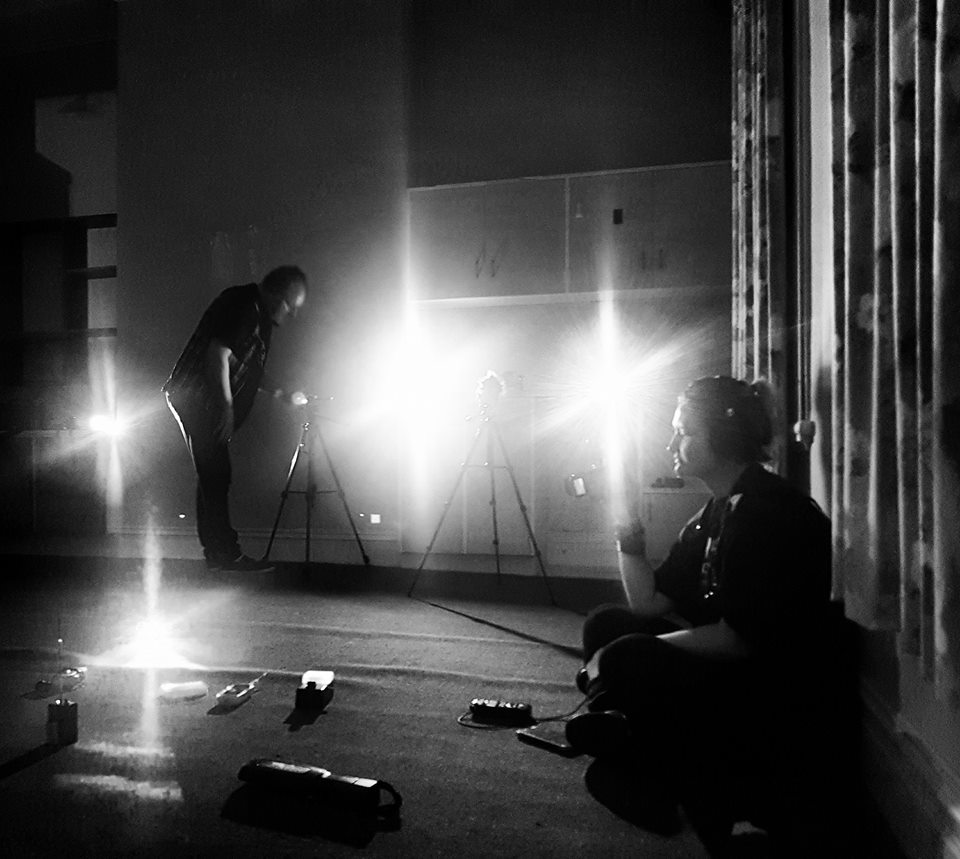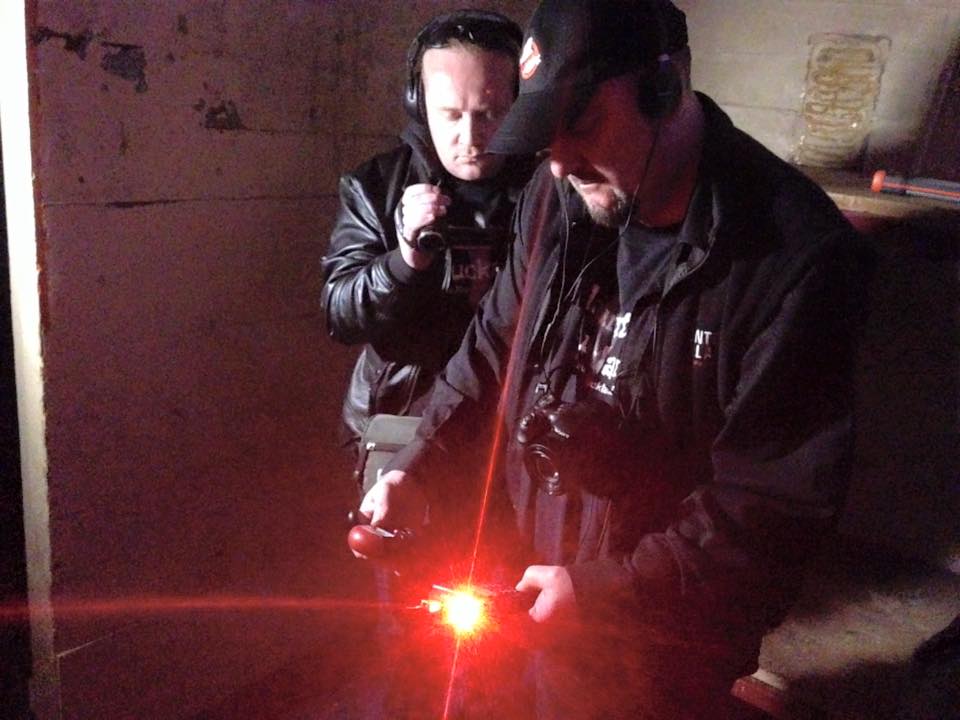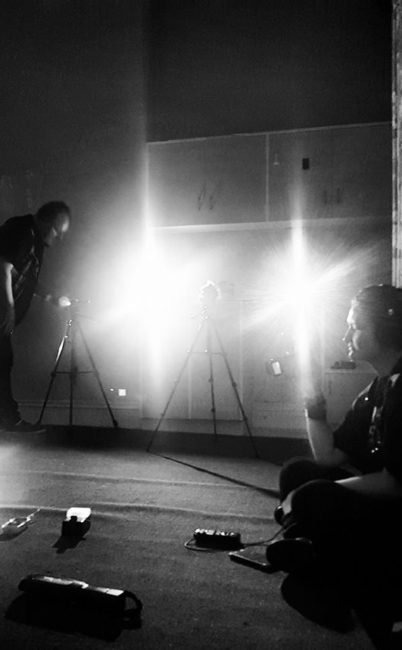 Many people who have a strong interest in the paranormal often ask how they can become a paranormal investigator. There is much you need to learn to become a thorough, careful, and practiced paranormal investigator.
Many people who have a strong interest in the paranormal often ask how they can become a paranormal investigator. There is much you need to learn to become a thorough, careful, and practiced paranormal investigator.
Paranormal investigation is extremely popular as an amateur hobby among enthusiasts who have experienced strange and seemingly unexplainable phenomena first-hand. Unfortunately, the majority of these potential investigators have no research background.
To become a careful and practiced paranormal investigator, there are several areas of training you can focus on to ensure you conduct yourself as an authentic researcher in the field. Doing so, you will increase your chances of successfully identifying the true source of phenomenon. If you are well trained, you may even be the one to make a true breakthrough.
Be prepared mentally
To enter any location and conduct a useful paranormal investigation, an investigator needs to be well-equipped, well-versed in the scientific method and critical thinking skills, and have an open mind. These are rare qualities in a field where the investigator must deal with phenomena that is extremely unpredictable, often not repeatable, hard to understand and, at times, somewhat scary. Paranormal investigation, more than any other field of research, demands excellent troubleshooting skills, excellent critical thinking skills, and understanding of the use, strengths, and limitations of technical equipment.
Read and learn your field
Before you embark on your first official investigation, do your own research and gain a thorough understanding of current and historic parapsychological research. Read books, websites, journals, and research papers from legitimate parapsychological authors and institutions. As you move forward as an investigator, continue to stay abreast of the field by pursuing ongoing knowledge of parapsychological research.
The Society for Psychical Research (SPR) is one of the oldest parapsychological organizations in the world. Using scientific method, the SPR has tested paranormal hypotheses and written numerous research papers to classify and identify paranormal entities and topics such as psychic phenomena and ghosts. The organization has journals, books, and more that can bring you up to speed on historic and current parapsychological research. https://www.spr.ac.uk/
The Association for Scientific Study of Anomalous Phenomena (ASSAP) is another British organization rooted deeply in scientific parapsychological research. Their website has an extensive library of science-based research into paranormal phenomena. http://www.assap.ac.uk/
We also recommend the very helpful and easy to follow blog and website, LLIFS – Living life in full spectrum, created by Australian paranormalist, Sarah Chumacero. LLIFS Paranormal Blog covers all things paranormal. Paranormal investigation technique, equipment, experiments, theories, famous paranormal cases, a general social commentary on the paranormal field and all things encountered in between. https://llifs.com.au/
Equipment
Because the Paranormal investigation field is mostly based on theory and hypothesis, there aren’t any official pieces of equipment that can definitively detect or conclude whether a ghost is in the room, or even exists at all. The main reason being that science still hasn’t determined what a ghost actually is.
We live in hope that one day a better understanding of the nature of ”ghosts” will reveal itself to scientists and paranormal researchers alike. Then we can move forward in our thinking in determining how we can better progress with the study. Until we have discovered what ghosts are actually made of; how they are created and who (or what) they are, can we even begin to start designing equipment to detect, measure and possibly even interact with these elusive entities.
 Since paranormal phenomena remains so poorly understood, technical investigators hoping to uncover the cause often find themselves starting from scratch. Over the years, investigators have uncovered some patterns such as elevated EMF levels and temperature fluctuations, and even audible recordings called EVPs (electronic voice phenomena). However, despite these findings, no one knows which environmental factors influence paranormal phenomenon. Since the cause is still an unknown, all environmental variables must be measured with the following equipment.
Since paranormal phenomena remains so poorly understood, technical investigators hoping to uncover the cause often find themselves starting from scratch. Over the years, investigators have uncovered some patterns such as elevated EMF levels and temperature fluctuations, and even audible recordings called EVPs (electronic voice phenomena). However, despite these findings, no one knows which environmental factors influence paranormal phenomenon. Since the cause is still an unknown, all environmental variables must be measured with the following equipment.
- Data loggers
- Accelerometers measure even the most minute vibrations of objects.
- Video recorders and cameras capture any phenomenon within the human visual range.
- Sound recorders measure sound waves (or EMF effects).
- Infra-red video and cameras.
- Thermal cameras measure changes in temperature and often even reveal shapes or patterns to the thermal field.
- Spectrum analysers detect energy throughout radio wave and microwave frequency range.
Strengths and Limitations of your Equipment
Read the manual for each piece of equipment you try and practice with it before you are in a live investigation. It’s important you know inside and out how to use it, what the data it gives you means, and its limitations. It’s also necessary to understand something else. In paranormal investigation, all of the equipment listed above isn’t scientific equipment. It’s technical equipment. While it may give you information about environmental conditions, it does not provide evidence of ghosts.
Too often, researchers record an environmental anomaly, such as an EVP or an apparition, and jump to the conclusion that it is a ghost, a spirit, or whatever other entity fits within their personal belief system. Psychics use their intuitive feelings to infer a spirit is present and which kind of emotional energy the entity emits. Unfortunately, these procedures fall short of the true scientific method because psychic functioning, while quite possibly a real phenomenon, has never been scientifically verified. So while the experiences are important, unless you can correlate psychic information with verifiable historical data, it’s only another data point and not evidence.
Understand Sound Principles of Investigation
Seasoned investigators approach every strange activity without a pre-conceived solution in mind. Even those who are religiously devout and believe in spirits can follow the scientific method by checking their personal beliefs at the door. Good investigators aim to do only one thing; examine data and follow it to wherever it leads. This doesn’t mean verifying it or debunking it. It only means establishing a hypothesis, testing it under controlled circumstances, and following where the data leads.
Don’t learn from T.V!
As you are starting out, find a paranormal investigator or team near you to help you begin to learn how to investigate. Do NOT learn from what you see on television. Just because something is on television doesn’t mean it’s an accurate representation of what’s actually required to work in the paranormal field. Paranormal television shows tend to be entertaining but not accurate. Instead, seek local paranormal investigators and ask them about their background, experience, and where and what they have learned. Ask about their methods, their hypotheses, and how they test them. Evaluate whether they can teach you based on what you have already learned.
Characteristics of a Good Paranormal Investigator
There are certain personal characteristics vital to learning how to become a paranormal investigator. Good investigators need to have the following traits.
- Level-headed
- Focussed
- Open-minded
- Critical thinking skills
- A keen learner
- Patient
- Immediately looks for a reasonable cause for an odd event
- Excellent troubleshooting and “trial-and-error” research skills
- Confident under pressure and a very calm demeanor
- Does not scare easily
- A team player
Many people wonder if they can get a paranormal investigator job. In general, because it is a hobby, most people don’t pursue paranormal investigation professionally unless they are degreed in parapsychology or a similar field and have years of experience and education. Even in those cases, most perform the work on a volunteer basis. There are many reasons for this, but one of the main ones is paranormal investigation is not an established science and you cannot guarantee any specific results or even that the conclusions you reach will be accurate.
If you’re seeking paying jobs in the paranormal, typically those fees come from writing books or articles, monetizing a blog, having paid speaking engagements, or selling some kind of merchandise or equipment.
It is considered unethical to be charging within a field that is largely an ‘’unknown’’ and we still have no idea of the whats, hows and whys of the ghost world. Be sure if you are charging, it is for a tangible service with results you can guarantee to deliver. Such as completed and thorough research or indisputable proof of the after-life or an actual ghostly resident within a home.
The fact still remains; There are no experts in the paranormal research field and solid unexplainable evidence pointing to their existence, is very rare.
Practice, Practice, Practice
After doing diligent research and understanding the fundamentals of paranormal investigation, it’s time to practice what you have learned. As you investigate, notice what works and doesn’t and refine your methods in order to continue to learn and grow.
Learn as you go and grow as you learn.
Develop skills, ideas, methods and techniques.
Progress will come with knowledge, experience and perseverance.

